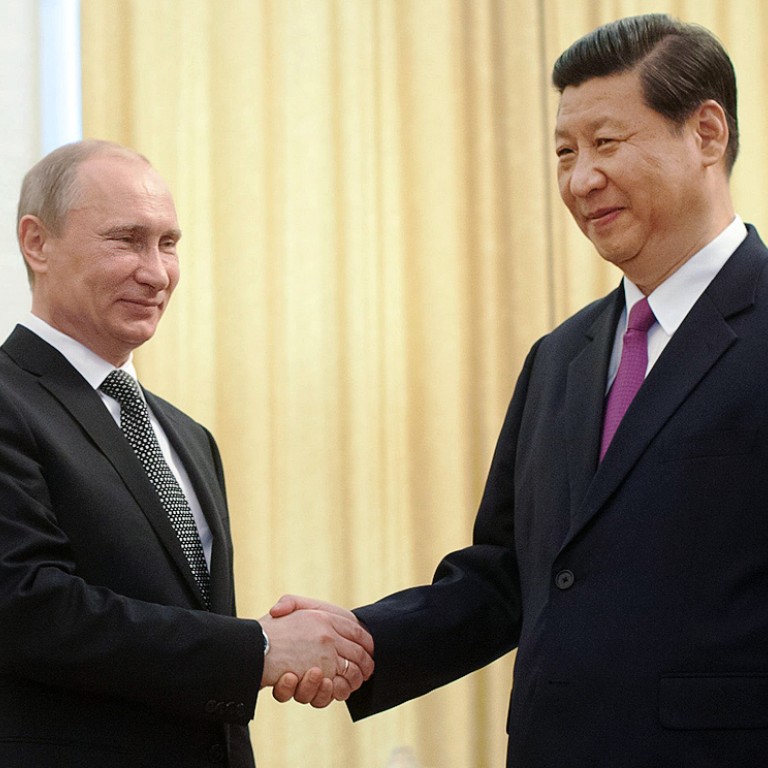
Xi Jinping’s anti-corruption drive has echoes of Putin’s
Like the Russian leader, Chinese president runs the risk of undercutting his own efforts
In his takedown of former security chief Zhou Yongkang, Chinese President Xi Jinping has bagged the most fearsome beast in his campaign against corrupt officials, both “tigers” and petty “flies” Unless Xi rethinks the way he hunts, though, even Zhou will end up little more than a trophy kill.
Supporters of this week’s decision to open a formal corruption investigation against Zhou – a former member of the Politburo Standing Committee, China’s highest-ranking body – say it achieves several goals: It reinforces the message that no officials are above the law, bolsters Xi’s efforts to repair the image of the Communist Party and adds to Xi’s personal authority, which already exceeds that of any Chinese leader since Deng Xiaoping. Xi reportedly intends to replace hundreds of disgraced officials with supporters more willing to carry out the structural changes needed to rebalance China’s economy.
The scope and opacity of Xi’s anti-corruption campaign, however, is already having unpredictable effects. In the first five months of this year, nearly 63,000 officials were investigated by the party. Rather than encouraging the others to fall in line, the crackdown appears to be terrifying them into inaction. A frustrated Premier Li Keqiang has publicly lamented the slow pace of implementing reforms.
By driving the campaign so personally, too, Xi can’t help but encourage the impression that arrests are politically motivated. Zhou may indeed be guilty – and he is sure to be found so in court – but he was almost certainly targeted because of his close ties to Bo Xilai , the former Chongqing party chief who challenged Xi’s authority. China’s graft-busters have carefully steered clear of any current members of the top leadership or their families and associates.
This naturally raises doubts about how long or far Xi will be willing to extend the corruption probes. Canny officials may simply decide that the best strategy is to align themselves with well-connected sponsors – or to get their money out now. There’s a reason overseas real estate investments from China rose 84 per cent in the first half of this year
Adding to Xi’s already considerable clout – which thus far has been the one unquestionable result of the crackdown – will not necessarily make China a more stable place, either. Similar hopes once greeted Russia’s Vladimir Putin – the only world leader Xi has said he personally admires, and another nationalist autocrat who initially gained popularity and support through anti-corruption efforts. Now, with rivals eliminated at home, Putin feels free to indulge in greater assertiveness abroad, similar to China’s own recent maritime adventurism. If Xi’s reform efforts start to flag, he too may be tempted to provoke geopolitical disputes as a distraction.
Xi may be sincere about wanting to eradicate official corruption. If so, he’d be better off doing exactly what he has resisted until now: institutionalizing the battle. He should have embraced the call to force all current officials to declare their assets, rather than arresting the activists who have promoted the idea. If creating a truly independent anti-graft body is out of the question, officials could at least do more to make government more transparent, thus reducing opportunities for rent-seeking.
Xi is undercutting his own efforts by clamping down on online expression and attempts to promote the rule of law in China. As experience in countries such as India and Indonesia has shown, a free media and society are irreplaceable assets in exposing corruption. High-profile arrests of internet commentators and judicial activists only reinforce fears that Xi is engaged in a Maoist political purge – no more and no less.
Unless they are guided by more transparent rules and investigative procedures, such campaigns will always appear politically tainted. Xi has declared that this October’s party plenum will focus on ways to further reforms by ruling the country according to law” That’s a fine ambition if true – and a more useful goal than shooting tigers one by one.

